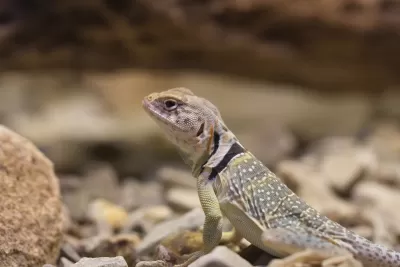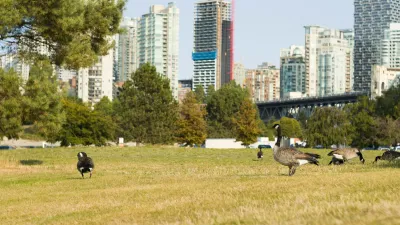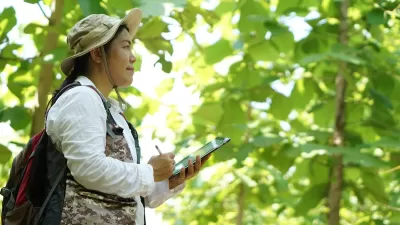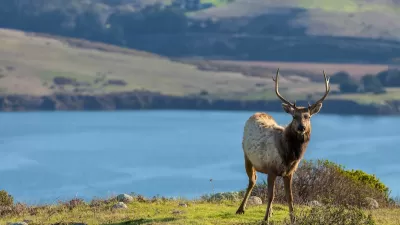Ecologists offer scientific lessons in how to better build cities for humans and wildlife.

Cities have long been understood to be human constructs; that is, its history of builders have bent nature to human’s needs. Coastlines were re-contoured for harbours or casinos. River-valleys were filled in for reservoirs or highways. Forests were replaced with houses or stadiums. The day’s logic dictated the need to shape the earth to provide humans with the goods needed for their survival (food, water, shelter and so on).
This anthropocentric view, however, is displaying disastrous consequences—from psychological disorders associated with a lack of exposure to nature, to flooded cities, to collapsed ecological processes that are needed to provide us with food, water, shelter, and so on.
Studies continue to push back against this view. We're advancing to recognize that the equation is not society and nature but rather society in nature, that how we plan cities is a way of organizing nature. Studying the needs of lizards is one way to parse this equation.
Authors in the journal Urban Ecosystems state that climate change will drive "half of the world’s lizard population to extinction." Exacerbating the collapse may be the warmer temperatures experienced in cities. Termed the urban heat island effect, this phenomenon occurs when the temperature in the city becomes higher than the surrounding rural areas. Reports indicate these temperatures can range from 1-3°C to as much as 12°C hotter.
Using a location in metropolitan Phoenix, the main objective of the study investigated "which landscaping styles and microhabitat variables can most effectively reduce the surface temperatures experienced by lizards." Exposed under the hot sun lizard activity time was restricted to a few hours, the authors said. "While heavily irrigated grass and shade trees allowed for continual activity during even the hottest days." Those areas under shade with increased humidity and access to a view of the sky explained the cooling effect needed for lizards to survive in the metropolitan climate.
This work continues to cast a bright light informing that planning cities for humans is not divorced from planning cities for nature; they are not mutually exclusive. For example, the research provides planners with scientifically-based work indicating a type of urban form that could mutually benefit humans and wildlife.
The ecologists warn that with continuing urbanization and climate change over the coming decades heat stress will continue to become an increasingly important facet of city living for humans, plants, and animals. The authors suggest that maintaining an existing diversity of landscaping styles necessary for the lizards parallels the ongoing mitigation strategy to lessen the urban heat island effect targeted at humans.
Connect with Steven on Twitter @stevenpsnell or Facebook stevenpsnell. Download his novel, Clear Running Water, at Smashwords.

Planetizen Federal Action Tracker
A weekly monitor of how Trump’s orders and actions are impacting planners and planning in America.

Chicago’s Ghost Rails
Just beneath the surface of the modern city lie the remnants of its expansive early 20th-century streetcar system.

San Antonio and Austin are Fusing Into one Massive Megaregion
The region spanning the two central Texas cities is growing fast, posing challenges for local infrastructure and water supplies.

Since Zion's Shuttles Went Electric “The Smog is Gone”
Visitors to Zion National Park can enjoy the canyon via the nation’s first fully electric park shuttle system.

Trump Distributing DOT Safety Funds at 1/10 Rate of Biden
Funds for Safe Streets and other transportation safety and equity programs are being held up by administrative reviews and conflicts with the Trump administration’s priorities.

German Cities Subsidize Taxis for Women Amid Wave of Violence
Free or low-cost taxi rides can help women navigate cities more safely, but critics say the programs don't address the root causes of violence against women.
Urban Design for Planners 1: Software Tools
This six-course series explores essential urban design concepts using open source software and equips planners with the tools they need to participate fully in the urban design process.
Planning for Universal Design
Learn the tools for implementing Universal Design in planning regulations.
planning NEXT
Appalachian Highlands Housing Partners
Mpact (founded as Rail~Volution)
City of Camden Redevelopment Agency
City of Astoria
City of Portland
City of Laramie






























